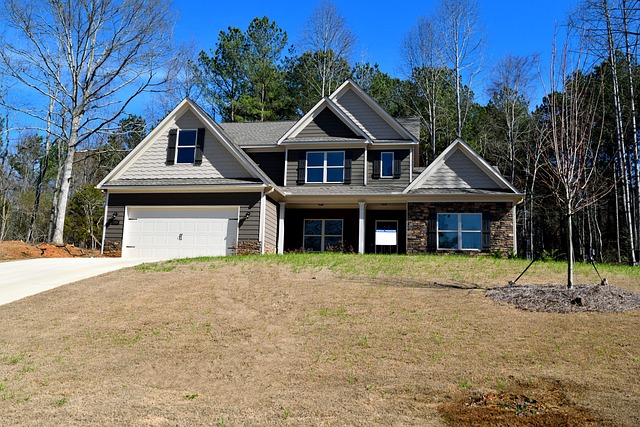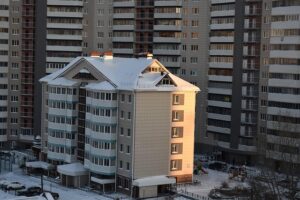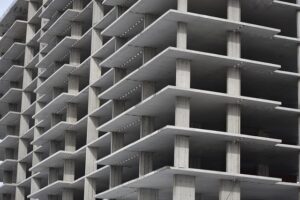EC Market Insights: Analyzing Trends and Prices of Executive Condominiums in Singapore
The average price of Executive Condominiums (ECs) in Singapore has been on a steady upward trend, reflecting robust market demand and limited availability. Factors such as economic growth, employment rates, consumer confidence, government housing subsidies, l…….

The average price of Executive Condominiums (ECs) in Singapore has been on a steady upward trend, reflecting robust market demand and limited availability. Factors such as economic growth, employment rates, consumer confidence, government housing subsidies, loan-to-value ratios, and the Total Debt Servicing Ratio (TDSR) influence EC prices. The balance between supply and demand is crucial; a surplus could stabilize or lower prices, while scarcity may drive them higher. Interest rates and broader economic conditions also play significant roles in shaping the market for ECs. Prospective buyers and investors should monitor these factors as they will affect the affordability and future pricing of ECs in Singapore. Keeping abreast of macroeconomic trends and policy changes is essential for making informed decisions regarding EC investments.
navigating the dynamic Singapore property landscape, prospective homeowners and investors alike are keenly interested in the trends shaping Executive Condominium (EC) prices. This article provides a comprehensive overview of the EC market, highlighting historical price trends, influential factors on pricing, and insights from recent launches. With a focus on the average price of EC units in Singapore across various regions, it also compares new versus resale ECs, offering valuable perspectives for decision-making. Furthermore, expert analysis on future projections considering economic and policy shifts will equip readers with informed foresight into the EC market’s direction.
- Overview of EC (Executive Condominium) Market in Singapore
- Historical Price Trends for Executive Condominiums in Singapore
- Factors Influencing EC Prices in Singapore
- Analysis of Recent EC Launches and Their Pricing
- Average Price of EC Units Across Different Regions in Singapore
- Price Trends of Resale EC Units in the Current Market
- Comparative Study: New vs. Resale Executive Condominiums
- Future Projections for EC Prices in Light of Economic and Policy Changes
Overview of EC (Executive Condominium) Market in Singapore

The Executive Condominium (EC) market in Singapore offers a unique segment within the housing landscape, catering to both upgraders from public to private housing and first-time homeowners. As of recent years, the average price of ECs in Singapore has shown a notable trend, reflecting the dynamic nature of the property market. These properties are designed to provide larger and more affordable options compared to private condominiums, while still offering the amenities and conveniences that modern living demands. Prospective buyers often consider the average price of ECs in Singapore when planning their home-buying journey, as these units represent a middle ground between Housing & Development Board (HDB) flats and fully privatized condominiums.
The pricing trends of ECs are influenced by various factors, including geographical location, the age of the development, and the overall economic climate. In 2021, for instance, the average price of an EC in Singapore reached a peak, driven by strong demand due to their affordability and attractive location choices. The resale market for ECs also saw a surge in prices, outpacing the growth rate of new EC launches. This highlights the importance of monitoring market trends closely if one is interested in investing in or purchasing an EC unit. Potential buyers should track the average price of ECs in Singapore to make informed decisions and to understand the investment potential within this segment.
Historical Price Trends for Executive Condominiums in Singapore

Over the years, the average price of Executive Condominiums (ECs) in Singapore has exhibited a dynamic trend, reflecting both market conditions and the evolving preferences of homebuyers. Historically, EC prices have shown resilience, often outperforming private condominiums during periods of economic uncertainty. Initial launches of ECs typically cater to middle-income families with pricing that is more accessible compared to non-landed properties in the public housing market. Notably, the price trajectory of ECs has been influenced by factors such as supply and demand dynamics, government policies, and broader economic indicators. For instance, during the financial crisis in 2008, EC prices remained relatively stable before gradually picking up pace in subsequent years. Similarly, after the implementation of cooling measures by the Singapore government to prevent speculative buying, EC prices experienced a softening period. However, with policy adjustments and improving economic conditions, EC prices have trended upward, reflecting the continued demand for such housing options among both upgraders from public housing estates and first-time homebuyers.
Analyzing historical data, one can observe that the average price of ECs in Singapore has been on an uptrend, with prices reaching new highs in recent years. This trend is partly attributed to the limited supply of these units, as they are available for a shorter duration compared to private condominiums before being sold out or transitioning into private housing after a certain period. The price appreciation is also a testament to the quality and location of these developments, often situated in mature estates with well-established amenities and connectivity. As such, the average price of ECs in Singapore has become an indicator of the property market’s health, providing valuable insights into the affordability and accessibility of housing for middle-income families in the region.
Factors Influencing EC Prices in Singapore

The average price of Executive Condominiums (ECs) in Singapore is influenced by a myriad of factors, both internal and external to the property market. Internally, the pricing of ECs is affected by their location, age, size, and the amenities they offer. Prime locations, such as those near mature estates with established infrastructure and conveniences, tend to command higher prices. Similarly, newer projects often fetch a premium compared to older ones, reflecting the appeal of contemporary design and facilities. The size of the unit also plays a role; larger units naturally cost more than their smaller counterparts. Additionally, the availability of exclusive features like smart home technology or resort-style amenities can significantly influence the pricing.
Externally, broader economic indicators and government policies have a profound impact on the average price of ECs. Monetary policies, such as interest rate adjustments by the Monetary Authority of Singapore (MAS), can affect mortgage rates, thereby influencing purchasing power and demand. The overall health of the economy, including employment rates and GDP growth, also affects consumer confidence and their willingness to invest in property. Moreover, the Supply and Demand dynamics within the housing market are crucial; an oversupply or scarcity of EC units can lead to price adjustments. Lastly, the ecological footprint and sustainability credentials of these developments, increasingly valued by eco-conscious buyers, may also influence their pricing in the evolving real estate landscape of Singapore.
Analysis of Recent EC Launches and Their Pricing

The Executive Condominium (EC) landscape in Singapore has witnessed a dynamic trend in pricing, particularly with recent launches that have set new benchmarks for affordability within the market. A discerning analysis of these EC launches over the past year reveals that the average price of an EC in Singapore has seen a notable increase, driven by a combination of factors including land sales and market demand. For instance, the average price of ECs in mature estates like Tampines and Bishan has climbed, reflecting the premium placed on such locations. These figures underscore the appeal of these properties among both upgraders and first-time homebuyers, as they offer a middle ground between public housing and private condominiums. The pricing trends also highlight the importance of location, with ECs in non-mature estates generally commanding lower prices but still reflecting growth in value. Prospective buyers have taken notice of this growth potential, which has contributed to the sustained interest in these properties despite the upward price adjustments. As such, the recent EC launches have set a new baseline for what buyers can expect in terms of pricing, with the average price of ECs in Singapore continuing to be a significant indicator of market sentiment and investment value.
Average Price of EC Units Across Different Regions in Singapore

The average price of Executive Condominium (EC) units in Singapore has been a subject of keen interest among potential homeowners, as these hybrid properties offer a balance between private condominiums and public housing. As of recent market analysis, EC prices across different regions exhibit varying trends based on factors such as location, amenities, and the overall property market conditions. In mature estates like Bishan, Yishun, and Tampines, where many ECs are situated, the average price per square foot has shown a steady increase, reflecting the high demand for living spaces in well-established neighborhoods with comprehensive facilities. Conversely, newer towns such as Sengkang and Punggol have seen a surge in EC development, which has influenced the average pricing to be relatively lower, offering affordable options for first-time homeowners. The price disparity between older and newer regions underscores the dynamic nature of Singapore’s real estate market, where potential buyers can find a wide range of EC prices tailored to different financial capacities. Prospective buyers are encouraged to conduct thorough research and consider factors such as future developments in the area, transportation links, and the track record of the developers when evaluating the value of EC units in their preferred region. Keeping abreast of the average price of EC units across Singapore’s diverse regions is essential for anyone looking to invest or purchase an EC as a home.
Price Trends of Resale EC Units in the Current Market

The resale executive condominiums (ECs) in Singapore have exhibited a dynamic pricing trend that reflects the market’s demand and supply dynamics, as well as broader economic factors. Prospective buyers interested in the average price of ECs in Singapore will find that these figures fluctuate based on a multitude of influences, including the maturity of the project, its location, and the overall state of the property market. As of the current market, resale EC units have shown an upward trend in prices, with some mature projects experiencing steady growth. This trend is indicative of the continued desirability of ECs as a housing option for both families and investors. The pricing of resale ECs also varies significantly across different regions, with certain areas commanding higher premiums due to their proximity to amenities, transportation nodes, and the reputation of the neighborhood.
In analyzing the average price of ECs in Singapore, it is important to consider the age of the development and its proximity to key infrastructure projects. Newer resale ECs, especially those within the first ten years of completion, tend to attract a higher average price compared to their older counterparts. This is partly due to remaining lease decays and the availability of CPF housing grants for eligible buyers, which can influence purchase decisions. Investors and homebuyers looking at resale ECs should conduct thorough market research and consider factors such as the property’s history, the condition of the unit, and the surrounding environment when assessing the average price of ECs in Singapore to make informed decisions.
Comparative Study: New vs. Resale Executive Condominiums

In recent times, the real estate market in Singapore has seen a notable interest in Executive Condominiums (ECs), with both new and resale units attracting significant attention from homebuyers. A comparative study of the average price of ECs in Singapore reveals that while new ECs often command higher prices due to their brand-new features, amenities, and the absence of immediate depreciation, resale ECs present a more cost-effective option for those seeking value for money. New ECs, which are sold directly by developers, typically appreciate in value over time, aligning with market trends and the desirability of newer properties. Conversely, resale ECs offer buyers the opportunity to enter the market at a lower entry price point, yet they come with the advantage of mature estates, where infrastructure and facilities may already be well-established, and where price trends can be more stable due to a established market presence. Investors and potential residents alike must weigh the benefits of brand-new amenities against the cost savings and maturity of resale options when considering the average price of ECs in Singapore. This dynamic between new and resale ECs presents a diverse landscape for buyers to navigate, with decisions informed by personal financial considerations, market trends, and long-term investment goals.
Future Projections for EC Prices in Light of Economic and Policy Changes

The average price of Executive Condominiums (ECs) in Singapore has been a subject of keen interest among property investors and potential homeowners alike. As of the latest data, EC prices have been on an upward trajectory, reflecting both the demand for housing and the scarcity of available units. Looking ahead, the future projections for EC prices are influenced by a confluence of economic factors and government policies. Economic indicators such as GDP growth, employment rates, and consumer confidence play a pivotal role in shaping the property market’s direction. Policy changes encompassing housing grants, loan-to-value (LTV) ratios, and total debt servicing ratio (TDSR) guidelines can also significantly impact purchasing power and affordability, thereby influencing EC prices.
In light of these variables, experts predict that the average price of ECs in Singapore will continue to be shaped by both market demand and the policy framework established by the government. The balance between supply and demand is crucial; an oversupply could dampen prices, while a shortage may lead to further price escalation. Additionally, changes in interest rates and the broader economic climate can affect the real estate sector’s health, which in turn affects EC pricing. Investors and homebuyers are advised to monitor both the macroeconomic environment and policy shifts closely, as these will be key determinants of future EC prices in Singapore.
2023 has been a pivotal year for understanding the dynamics of Executive Condominium (EC) pricing in Singapore. This article delineated the comprehensive landscape of EC prices, drawing from historical trends, current influences, and future projections. The average price of EC units in Singapore has shown resilience and adaptability to market conditions, with recent launches reflecting a balanced response to economic shifts and policy adjustments. As we analyze the data, it becomes evident that the EC market plays a crucial role in the property ecosystem, offering an affordable option for aspiring homeowners. Prospective buyers and investors alike should keep abreast of these trends to make informed decisions in this vibrant real estate sector. With ongoing developments and evolving policies, the average price of ECs in Singapore will undoubtedly continue to be a metric of significant interest and relevance.







